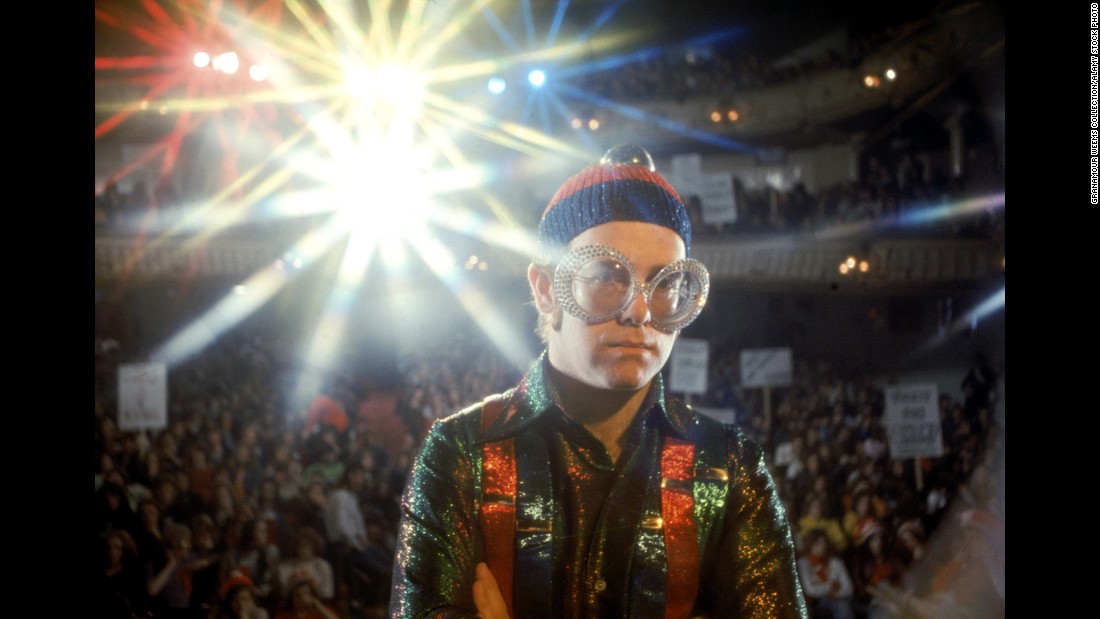

The famous guitar riff was sampled by The Shocking Blue on their 1969 hit "Venus," which was covered by Bananarama in 1986. Two of the dates were in the Metropolitan Opera House in New York City. The Who performed the entire album from start to finish on their subsequent tour. The Who were given the early morning slot, so they ended up playing this as the sun came up. The song was still fairly new, so many in the crowd did not recognize it. The Who performed this at Woodstock in 1969. Along with "See Me, Feel Me," it is one of 2 songs from the album that The Who played throughout their career. This was the most famous and enduring song from the Tommy project. The single version was sped up to make it more radio friendly. Townshend liked how that related to listeners picking up the vibrations of the music to feel the story. The character Tommy played pinball by feeling the vibrations of the machine. Cohn gave it a great review, and pinball became a main theme of the Rock Opera. Townshend knew Cohn was a pinball fanatic, so he put this together to ensure a good review. Townshend wrote it when he found out influential UK rock critic Nik Cohn was coming to review the project.

This was the last song written for Tommy. Townshend was not credited as the only songwriter on the project - John Entwistle wrote "Cousin Kevin" and "Fiddle About," and Keith Moon got credit for "Tommy's Holiday Camp." It existed mostly in his head while they were recording it, and the other members of The Who had no idea how most of the story would end until they finished it. Elton John made an appearance as The Pinball Wizard and performed this.
#PINBALL WIZARD ELTON JOHN OR THE WHO MOVIE#
Tommy was made into a movie in 1975 starring Jack Nicholson, Ann Margaret, Tina Turner, and Roger Daltrey (who played Tommy). It was made into a play and continues to run as an off-Broadway production.

However, in a fated sort of way, the song seemed to reach its spiritual home as the band played it at Woodstock in 1969, just as the sun was peaking over the horizon, leaving the crowd mute in awestruck wonder.Pinball Wizard is a song by The Who which is part of Tommy, the first " Rock Opera." Tommy is about a young man who is deaf, dumb, and blind, but becomes a pinball champion and gains hordes of adoring fans. In the movie, Elton John makes an appearance as The Pinball Wizard and performed this song with his hit version peaking at number seven in the UK charts. The track itself would go on to be a hit, which played a pivotal part in the 1975 movie based on the album, Tommy, starring Jack Nicholson, Ann Margaret, Tina Turner, and Roger Daltrey himself (who played Tommy). “I found that a stunning thing to call upon while I was in the process of writing ‘Pinball Wizard.’ I analysed every single chord,” Townshend concludes, “and found ways to play them on guitar.” A single bowed note runs throughout that whole piece. “It’s a very plaintive piece, almost like the Samuel Barber composition ‘Adagio for Strings’,” Townshend explained, adding: “Only the Purcell piece was written in 1600 or something. The track itself is built around an old Symphonic piece that Townshend discover around the time of recording, as he told Guitar World back in 2005: “The chordal structure for the intro was inspired by Henry Purcell, who did this very short piece called ‘Symphony Upon One Note.'” The track microwaved Cohn’s lukewarm first thoughts and resulted in a glowing hot review. Townshend decided that the deaf, dumb and blind protagonist should also excel in a certain area and with Cohn being a pinball fanatic, that area of expertise presented itself quite readily.Īlmost immediately after this conversation with Cohn, ‘Pinball Wizard’ was written and written. Afterwards, Townshend discussed the record with Cohn and took his remarks regarding the overbearing fidelity to subtext onboard. The story goes that in late 1968 – or early 1969 – when The Who played a preview of their new album in the presence of legendary critic Nik Cohn, and his reaction to the performance was middling. ‘Pinball Wizard’ is the perfect example of his dichotomous, head in the clouds yet finger to pulse approach. As a songwriter, Townshend may well have had both feet planted firmly in the realm of spiritualism, but he was still peaking over into the mainstream and never lost sight of what makes a hit. However, what singled Pete Townshend out as a unique creative force is that such a spiritual and deep synopsis could be transmuted into something so fun and palatable. As far as a creative impetus for rock music goes, that is about as nebulous as it gets.


 0 kommentar(er)
0 kommentar(er)
